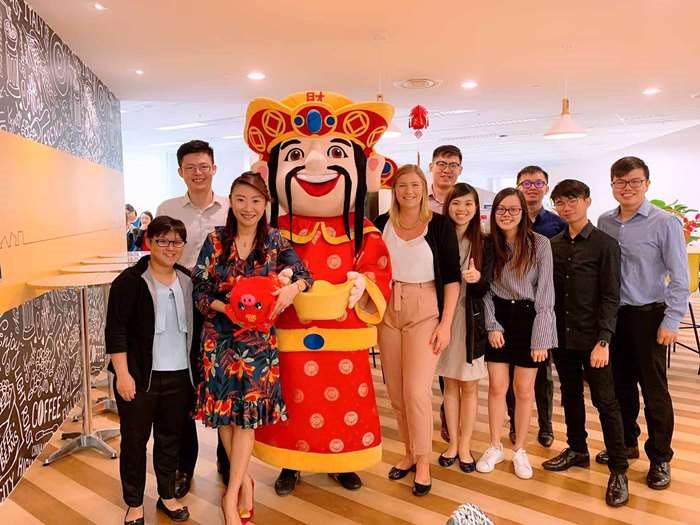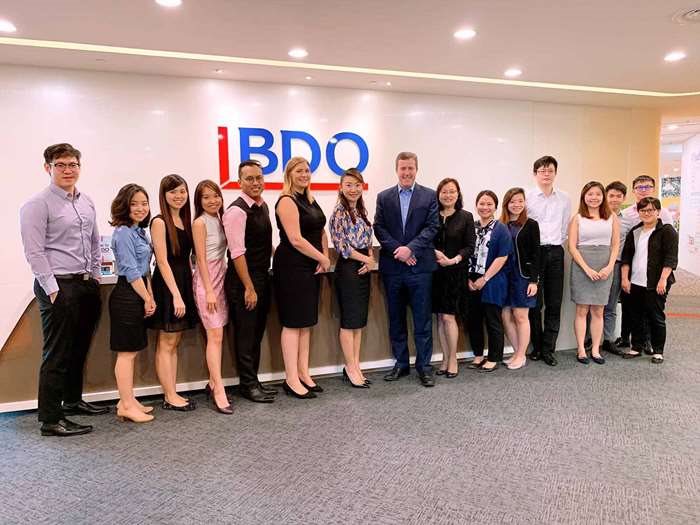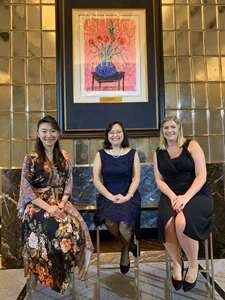Original content provided by BDO United Kingdom
Published by: Becky Hartley - Tax Manager, BDO Singapore and BDO UK
I can’t quite believe I am already six months in to my secondment with BDO Singapore – the time really has flown by. Whilst I am out in Singapore, I am working with both the Private Client Services (“PCS”) team at BDO Singapore whilst maintaining my role for the Tax Dispute Resolution (“TDR”) team with BDO in the UK.
So, what’s Singapore like? What has happened over the last six months? And what are the differences in the tax landscape?
What’s Singapore like?
I decided on seconding to Singapore having heard so many great things about it being both an exciting yet rewarding place to work and live. Now that I have experienced it first hand, I can absolutely confirm this is true.
Singapore is a cosmopolitan city which is safe, clean and surprisingly green with many advantages such as economic and political stability, low crime rates, reliable public transport and excellent healthcare. This is balanced with the high cost of living, including food & drinks, clothing and accommodation. Of course, the relatively low tax rates make these higher costs far easier to manage.
With a unique blend of both Western and Asian culture, Singapore is a diverse city and as English is widely-spoken, it’s so easy to navigate around and meet new people. Eating is the national sport – so there is a vast number of places to eat, from Hawker centre to high-end restaurants. You can also find skyscrapers, markets, temples and a large number of hotels and air-conditioned shopping malls.
There is so much culture in Singapore and I was lucky enough to celebrate Chinese New Year in Asia for the first time this year. It was a fantastic experience, with lots of fantastic food, parades in Chinatown and observing traditions such as wearing red and watching lion dances.

One of the major bonuses of living in Singapore is being able to visit so many great places only a short plane journey away. In the last six months, I have already re-visited some of my favourite spots in Asia, including Thailand, Vietnam and Bali and I am now planning to explore a number of places that I have never been to before.
What has happened?
It’s been a very busy six months for me settling in to my role with BDO Singapore, learning new things (including getting to grips with the Singapore tax system) and taking on many new challenges.
There has also been a burst of activity for the PCS team since I joined in November. This kicked off with the STEP Asia conference in my second week in Hong Kong. It was great to meet so many new people in the industry and learn more about how things work in Asia. We also had our BDO global PCS conference in the same week in November. This annual conference gives us the opportunity to share tax updates and maintain the strong relationships with our BDO international private client counterparts.
Following the Singapore Budget in February, BDO Singapore hosted a budget seminar on 5 March 2019 to discuss the key updates. The 2019 Budget, whilst low on major tax changes, saw a continuation of the nation’s journey towards strengthening Singapore’s economic competitiveness in an era of increasing uncertainty. The Government’s vision is to position Singapore as a “Global-Asia node of technology, innovation and enterprise”. Updates included extensions and enhancements to various tax incentive schemes, particularly those for the asset management sector. The Not Ordinarily Resident scheme will also be phased out to create a level playing field between local and foreign talent. There was also a number of targeted measures aimed at helping Singaporeans build deep enterprise and worker capabilities together with forging deeper partnerships across the economy.
In March 2019, TDR partner Richard Morley, came out to Singapore from the UK for a few days. During this time, we met up with a number of key contacts with the view of spreading the word that I am now based in Singapore meaning that I can bridge the gap between the UK and Singapore BDO offices. It was a really successful visit where we discussed all things Brexit, tax transparency and international tax.

In April, an article that I wrote with UK TDR Partner Dawn Register, was published in the STEP Journal. The article considers some of the practicalities of the recent rule changes for non-UK residents in respect of UK properties together with some an insight into the international property world.
 On 12 April 2019, BDO Singapore hosted its first Premier Family Office Connect event to thank its most valued clients and contacts. I was part of the team who organised the event, which was a great success. The event included an international tax trends update from Kylie Luo who heads up the PCS team in Singapore and a panel discussion with some family members and representatives from the Monetary Authority of Singapore (“MAS”) and the Economic Development Board (“EDB”). We intend to host further events like this going forward.
On 12 April 2019, BDO Singapore hosted its first Premier Family Office Connect event to thank its most valued clients and contacts. I was part of the team who organised the event, which was a great success. The event included an international tax trends update from Kylie Luo who heads up the PCS team in Singapore and a panel discussion with some family members and representatives from the Monetary Authority of Singapore (“MAS”) and the Economic Development Board (“EDB”). We intend to host further events like this going forward.
What are the differences in the tax landscape?
Singapore’s tax regime is well-known for its attractive personal and corporate tax rates, tax reliefs, one-tier tax system, absence of capital gains and extensive double tax treaties. With the corporate tax rate capped at 17% and the highest of the progressive personal income tax rates at 22%, the rates are competitive and designed to attract foreign investment.
Singapore follows a territorial basis of taxation, which means that individuals and companies are taxed on their Singapore sourced income only. However, foreign sourced income may be taxed when it is remitted into Singapore in certain circumstances for example, through a partnership. Goods and Services Tax (“GST”) was introduced in 1994 and currently stands at 7%. This is a broad-based consumption tax levied on the import of goods, as well as nearly all supplies of goods and services in Singapore.
Unlike the UK, Singapore has no capital gains tax, inheritance tax or estate duties. However, there are property taxes plus stamp duty, which is significantly higher for foreigners, making it less attractive for foreigners to purchase properties in Singapore.
The key tax trends that I note from my time so far in Singapore include the massively popular tax incentives for Singapore-based investment funds. The PCS team is currently inundated with work in this area and we do not expect this to change any time soon given that the Government have extended the deadline to apply for these incentives to 31 December 2024. The profile of the family office clients who base themselves in Singapore is varied but a significant proportion of these are ultra and high net worth individuals from Asean countries who want a proper structure in place to manage their family’s wealth. In addition, with the increasing focus by tax authorities on the use of offshore tax haven entities (e.g. the British Virgin Islands, Cayman Islands etc) to hold assets, high net worth families are also eager to ensure that their assets are held in tax compliant and tax efficient structures.
We are also seeing a large number of Singapore Permanent Residence status (“PR”) applications through the Global Investor Programme (“GIP”), which requires the applicant to make substantial investment into Singapore and in some cases to have entrepreneurial experience and significant net worth (SGD 400 million). This further demonstrates the appeal of Singapore as a place to live and do business. It is well-known that Asia has been leading the way of wealth creation in recent years but Singapore has truly established itself as a major global financial hub and we can expect the Singapore Government to continue to offer incentives such as these to foreigners who base themselves here.